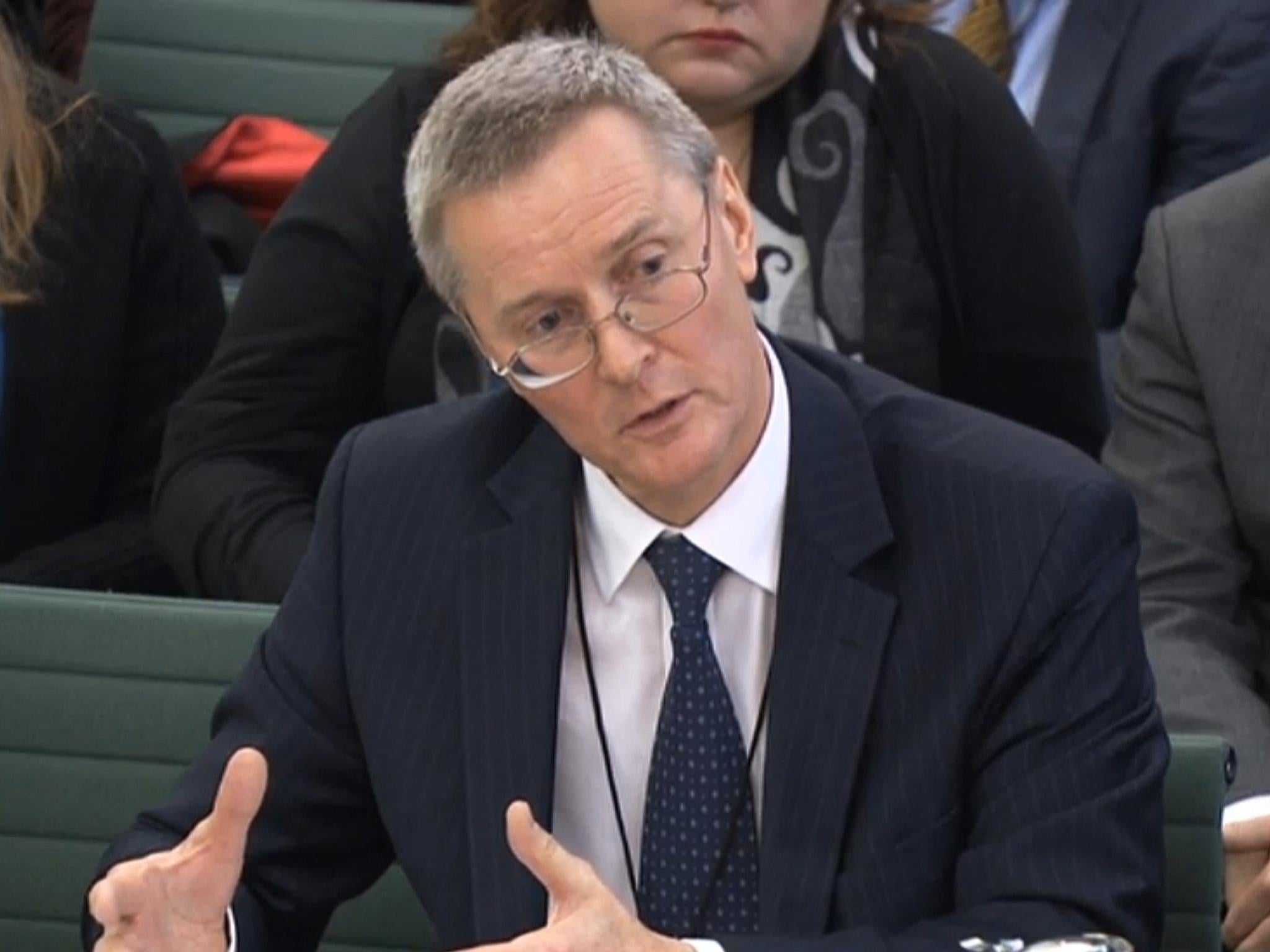Carillion: Former director ‘dumped’ shares in bankrupt construction company at first possible moment
'For any other organisation, this kind of activity would be gobsmacking. For Carillion's directors, this was business as normal'

Your support helps us to tell the story
From reproductive rights to climate change to Big Tech, The Independent is on the ground when the story is developing. Whether it's investigating the financials of Elon Musk's pro-Trump PAC or producing our latest documentary, 'The A Word', which shines a light on the American women fighting for reproductive rights, we know how important it is to parse out the facts from the messaging.
At such a critical moment in US history, we need reporters on the ground. Your donation allows us to keep sending journalists to speak to both sides of the story.
The Independent is trusted by Americans across the entire political spectrum. And unlike many other quality news outlets, we choose not to lock Americans out of our reporting and analysis with paywalls. We believe quality journalism should be available to everyone, paid for by those who can afford it.
Your support makes all the difference.The former finance director of collapsed construction giant Carillion “dumped” the last of his shares – worth hundreds of thousands of pounds – at the first possible moment, it has been revealed.
Fresh information was published following new letters to the Work and Pensions and Business Select Committees, which are conducting a joint inquiry into the company’s spectacular demise.
The committees published responses from Carillion’s former financial director Richard Adam and his successor Zafar Khan.
Mr Adam retired at the end of December 2016. On 1 March 2017 he sold his entire existing shareholding for £534,000, including performance awards for 2013-2015 of £277,000 which vested on his retirement.
He then sold his long-term incentive plan awards for 2014 on 8 May 2017, the day they vested, for £242,000.
In total, in March and May 2017 he sold shares worth £776,000, the committees revealed.
Richard Adam said: “I sold the shares that I was eligible to sell when I was invited to do so by the company as I retired.
“More than half of the shares in the company that I had an interest in at retirement have been lost as a result of the company entering liquidation.”
Previous evidence published by the committees said Mr Adam regarded funding Carillion’s pension scheme as a “waste of money”.
Mr Khan had his contract terminated last September after eight months in the job, having “spooked” Carillion’s board with a financial update a few days earlier that showed there had been a further decline in the company’s position since the “shock” £845m contract write down in July 2017, said the committees.
They added: “Mr Khan argues that it is surprising that the board were ‘spooked’ by his update, as it should have been apparent to the board by then that the company was struggling to improve both its net debt and profit positions.”
Frank Field, chairman of the Work and Pensions Select Committee, said: “Mr Adam presided over Carillion’s finances for a decade. He, more than anyone else, ought to know the merits of Carillion shares as a long-term investment in the light of his lengthy and lucrative tenure.
“His assessment? Dumping the last of his shares at the first possible moment because he is – with his own money at least – ‘risk averse’. What conclusions are we to draw from that?
“The other directors appear keen to set up the hapless Zafar Khan as the fall guy for the collapse. It is not lost on us, however, that he inherited Carillion’s mountain of debt.”
More than 1,000 Carillion workers have lost their jobs since the company went into liquidation last month.
A spokesman for Unite said: “For any other organisation, this kind of activity would be gobsmacking. For Carillion’s directors, this was business as normal.
“We now know that Carillion insiders already knew they were in deep trouble in 2016, but we have seen again and again that the directors’ main priority was to enrich themselves and feather their own nests rather than protect the interests of the company.
“While Carillion’s directors enriched themselves, they allowed their workforce and their supply chain to be thrown to the wolves.”
PA
Join our commenting forum
Join thought-provoking conversations, follow other Independent readers and see their replies
Comments